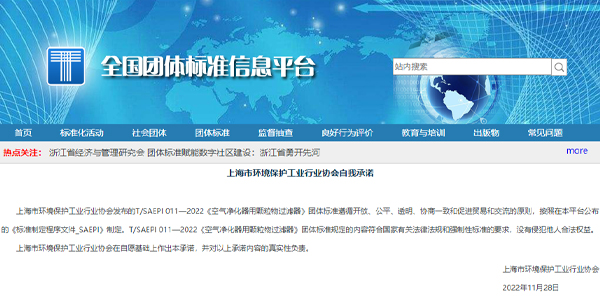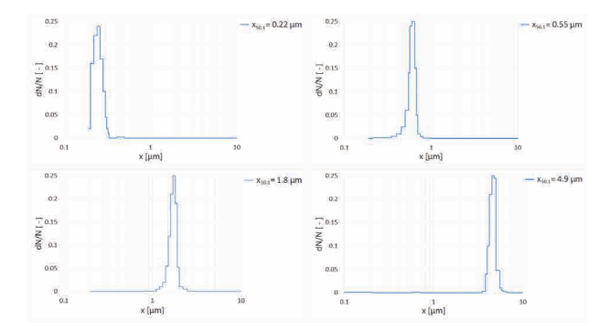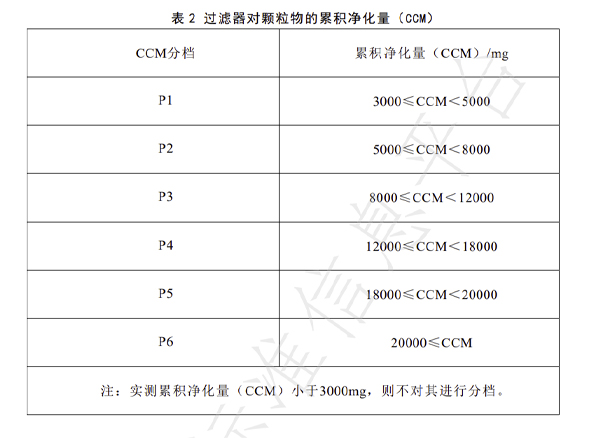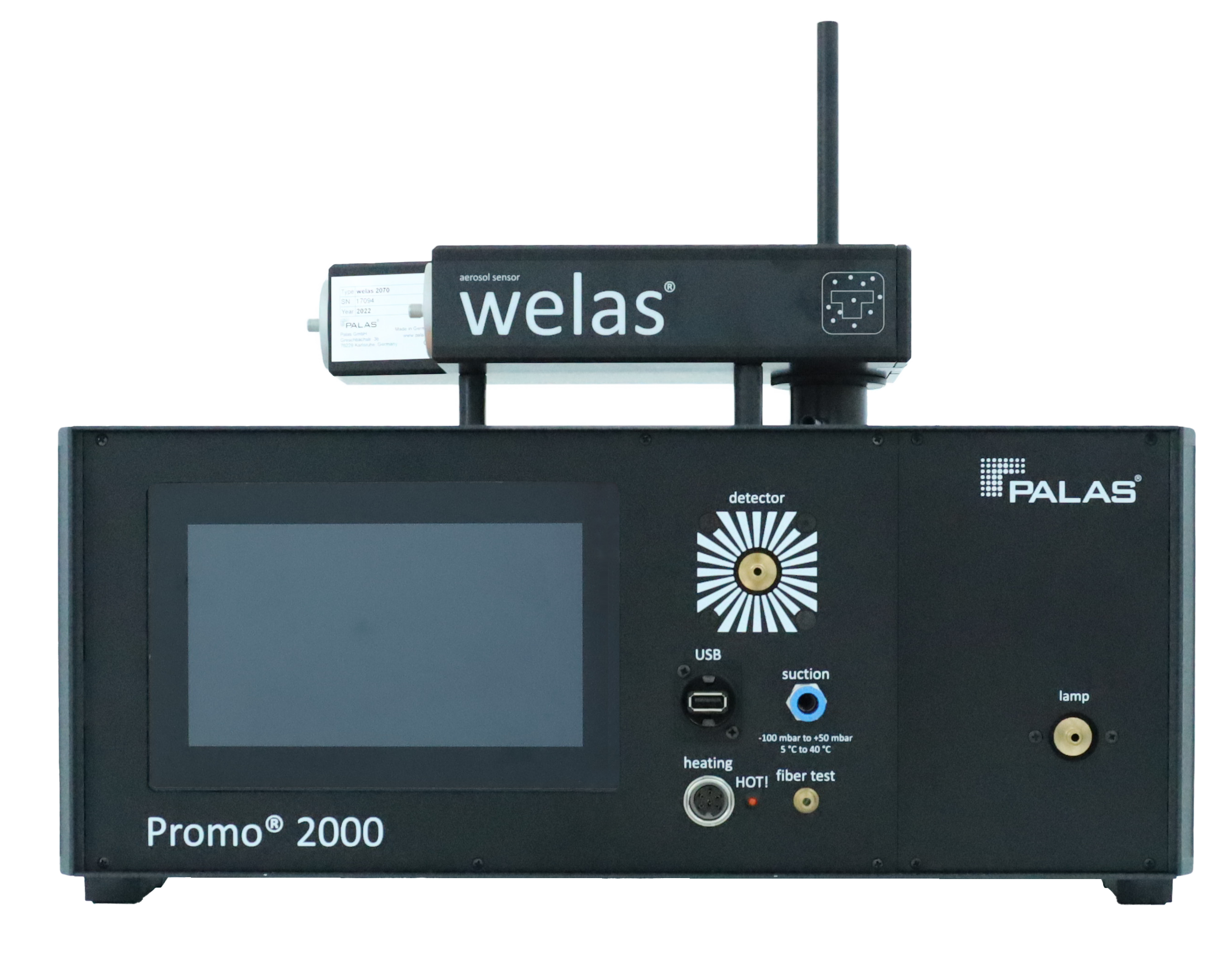In recent years, people pay more and more attention to air quality, and the air cleaner and its filter manufacturing industry are booming. In order to make the industry standard clear, the Shanghai Association of Environmental Protection Industry (SAEPI) released the association standard Particle Filter for Air Cleaner on November 1, 2022. The standard clarifies the definition of particle filter for air cleaner. And it proposes the requirements and corresponding test methods for the filtration efficiency and resistance of fine particle matter PM1.0, which is more harmful to human beings. It also adopts the Cumulate Clean Mass (CCM) as one indicator of the use of product, filling the absence of the current standard. Palas®, a manufacturer of air filter and filter media test rig systems, participated in the formulation of the standard. With its extensive experience in particle filtration testing, Palas® used the Palas® Promo® 2000 series single particle light-scattering aerosol spectrometer for the measurement of PM1.0 and PM2.5. It provided strong data support for this standard formulation and escorted the long-term development of the industry.

Palas® helps unify air cleaner industry standards
The long-term development of an industry requires an ever-improving set of standards to be followed by the industry. While the emerging air cleaner industry is growing, the industry standard should also be supplemented in time. On November 1, 2022, the Shanghai Association of Environmental Protection Industry (SAEPI) released the association standard Particle Filter for Air Cleaner, which has taken effect on December 1. Palas Instruments (Shanghai) Co., Ltd. was honored to be one of the drafters of this association standard.

Palas® participates in formulation of Particle Filter for Air Cleaner association standards
As a member of the drafting team, Palas®, which specializes in particle filtration testing, used the Palas® Promo® 2000 series single particle light-scattering spectrometer to measure PM1.0 and PM2.5. The Promo® 2000 is a light-scattering aerosol spectrometer system for particle size analysis and concentration determination. After equipped with one welas® sensor, it can measure particle size distributions in the range of 0.2-10µm. The Palas® Promo® 2000 provided extensive and consistent measurement data to help SAEPI classify the counting efficiency of PM1.0 and resistance of different air filters.

Promo® 2000 with 2200 sensor is characterized by its very high counting efficiency starting from 0.2 µm
Publication of the association standard
The standard classifies products based on the filtration efficiency, CCM and the structure type of the air cleaners. The association tested the counting efficiency of PM1.0 and the initial resistance of the filters at rated air flow, or CCM, providing a detailed and clear standard for the industry.

Diagram of the counting efficiency of PM1.0 and the initial resistance of the filters at rated air flow
 Diagram of CCM of filters for particle matter
Diagram of CCM of filters for particle matter
Click here to learn more about Particle Filter for Air Cleaner association standard
Palas® Promo® 2000 series single particle light-scattering aerosol spectrometer

Promo® 2000 is a light-scattering aerosol spectrometer system for particle size analysis and concentration determination that can be equipped with all welas® sensors. On Promo® 2000, the welas® sensors equipped with different measurement volumes, as required, can be easily connected via fiber optic cables and interchanged as required. These sensors allow reliable measurement in the concentration range from < 1 particle/cm3 up to 106 particles/cm3 in gases. Unique are up to four measuring ranges in only one device:
1. 0.2 µm – 10 µm
2. 0.3 µm – 17 µm
3. 0.6 µm – 40 µm
4. 2 µm – 100 µm (additionally for sensors 2300 and 2500).
Advantages
· Measuring range of 0.2 to 100 µm (4 measuring ranges selectable in one device)
· Up to four measuring ranges in only one device:
– 0.2 µm – 10 µm
– 0.3 µm – 17 µm
– 0.6 µm – 40 µm
– 2 µm – 100 µm (additionally for sensors 2300 and 2500)
· Up to 128 size channels per measuring range
· Concentration range of 1 particle/cm3 to 106 particles/cm3
· Calibration curves for different refractive indices
· Very high and reproducible counting efficiency rate starting at 0.2 µm
· Pressure-resistant up to 10 bar (optional)
· Heatable to 250 °C (optional)
· Optical fibre technology
· Simple operation with a large touch display
· Calibration, cleaning and lamp replacement can all be performed independently by the customer
· External control by RS 232 or Ethernet
· With analysis software PDAnalyze
· Optional: Software PDControl for operation as welas® digital available
· Low maintenance
· Reliable function
· Reduces your operating expenses
Applications
· Emission monitoring of installations
· Control of grinding and classification processes
· Monitoring of production processes in the food, pharmaceuticals and chemicals industries
· Testing of complete filters, inertial and wet separators or electrostatic precipitator
Palas® will arrange a series of online webinars both in English and Chinese for Ambient air quality continuous automatic monitoring system, SMPS scanning mobility particle size spectrometer, Promo® aerosol spectrometer, Aerosol generator and Dilution system, ISO 16890 filter media test rig-MFP 3000 G, ISO 29463-3 HEPA/ULPA filter media test rig-MFP Nano plus 4000, ISO 17536 oil mist separator filtration performance test rig-HMT 1000, as well as many other aerosol measurement solutions. You are welcome to register for the conference and will be informed of the webinar information as soon as possible!
Click here to register now

